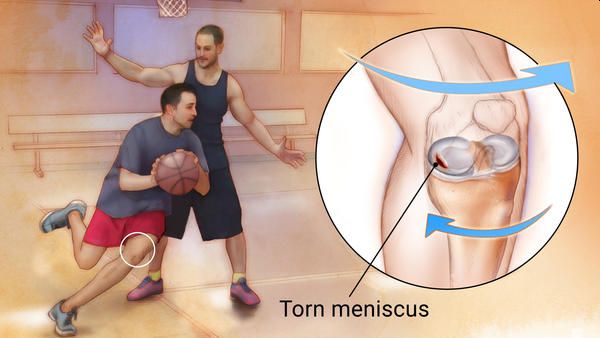Very often we hear people (young and old) with knee discomfort or accidents, which is one of the most common injuries, and end up sometimes undergoing meniscus surgery. With this article orthopaedic in Delhi explains you what meniscus are and how to treat your injury.
Definition of meniscus injury:
Meniscuses are fibrocar cartilage that are located inside the knee joint and are located between the femur and tibia.
There is a medial meniscus (inner part of the knee) and another side (outer part). It has a semi-lunar shape and its main function is to increase the depth of the relatively flat surface of the top of the tibia and be able to be a true cushion of the knee.
In younger patients, the meniscus is a fairly resistant and elastic structure and the rupture of the meniscus is caused by a significant twisting or turning of the knee.
In older people (40–45 years) who perform a sport, the meniscus becomes weaker, the tissue degenerates and is less resistant and the injury can be caused by minor trauma, for example, by rising from the squat position or by performing an exaggerated bending of the joint.
Usually, this type of injury is very much presented in contact sports such as football and rugby and is suffered by athletes in general.
- Symptoms of meniscus injury:
The most common symptoms of meniscus tearing are:
- Pain
- Stiffness and inflammation
- Immobilization or locking your knee
- The feeling that your knee "collapses"
- You are not able to move the knee in the full range of motion.
The most common symptom with a torn meniscus is pain and pain can be diffuse, especially when there is significant inflammation of the knee. If the damaged part is large enough, a crash may occur. The blockage occurs when the broken fragment of the meniscus is trapped inside the hinge mechanism of the knee, preventing the total extension or bending of the knee.
- Self-care to prevent meniscus injury:
It is always advisable to have a proper physical preparation, but not only from an aerobic point of view, but also from the point of view of strength and toning, which is the sense that alerts the body to the location of the muscles. Injuries are more common in people who do occasional physical activity and with very low physical preparation, says orthopaedic doctor in Delhi.
- Treatment of meniscus injury:
It should always be evaluated by a specialist doctor and your orthopaedic surgeon in Delhi will treat your tear depending on the type of tear, size and location.
If the injury is longer and surgery has had to be performed, the period of return to normal activity will be longer and under specialized medical supervision.
In addition, depending on the type of tear you have, your age, activity level, and any related injuries, they will be factors that will influence your treatment plan.
- Non-surgical treatment in meniscus:
If your tear is small and located on the outer edge of the meniscus, it may not require surgical repair. As long as your symptoms don't persist and your knee is stable, nonsurgical treatment might be all you need.
THE RICE protocol for meniscus injuries
This protocol is effective for most sports-related injuries. RICE stands for R-Rest, Ice, Compression, and E-Elevation.
- Rest. Leave for a while the activity that caused the injury. Your orthopaedic in West Delhi may recommend that you use crutches to avoid the weight on your leg.
- Ice. Use cold packages for 20 minutes at a time, several times a day. Do not apply ice directly to the skin.
- Compression. To prevent additional swelling and blood loss, use an elastic bandage for compression.
- Elevation. To reduce inflammation, lean when you rest and place your leg high above the level of your heart.
Orthopaedic doctor in Dwarka recommends that medicines are always under medical formula. Aspirin and ibuprofen reduce pain and inflammation. If you are going to consume anti-inflammatory drugs that are nonsteroidal.



No comments:
Post a Comment